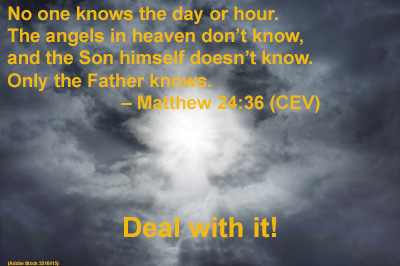Praying Now
I’ve been working on a new pamphlet for the Participatory Study Series entitled 7 Barriers to Prayer in Your Church. I came up with these seven barriers while leading a prayer conference at my home church (Gonzalez United Methodist). The following expands on just one of these points.
1Now Peter and John went up to the temple at the hour of prayer, the ninth hour (3 PM). 2And there was a man who was lame from birth. There were some people who carried him there each day to the gate of the temple that is called “Beautiful” so he could beg from charity from those who went into the temple. 3When he saw Peter and John about to enter the temple he asked them for some charity. 4But Peter looked at him, as did John, and Peter said, “Look at us!” 5So he expected to get something from them. 6But Peter said, “I don’t have any siler or gold, but what I have I’m giving you. In the name of Jesus Christ of Nazereth, Rise and walk!” 7And Peter took him by the right hand and raised him up. And immediately his feet and ankles were strengthened. 8And he jumped up and stood, and walked around and entered the temple with them, walking and jumping and praising God. 9And all the people saw him walking and praising God. 10But they recognized him as the one who has been sitting in the Beautiful gate of the temple, so they were totally amazed and astonished at what had happened to him (Acts 3:1-10).
I have always found it interesting how many parents will complain about the government not permitting official prayer in public school (though student led prayer as appropriate times is legal), while at the same time they will confess that they don’t find time to pray with their own children in their own home. There seems to be a strong desire to talk about prayer, but when it comes right down to it, we’re not all that anxious to just do it!
And this leads me to the second of my seven barriers. (Yes, I’m aware I haven’t written about the first.) This is the “we’ll pray for you” barrier. You can see this in action in just about any church when someone tells another member about a problem, and the response is, “We’ll pray for you.” The idea is that at home in their personal devotional time, or in the next scheduled prayer meeting or prayer group, they will mention that person’s need in prayer. The problem is that frequently we forget to pray, and only rarely is the person prayed for present to receive the personal support of his or her church family praying.
This has led me to think about this experience of Peter and John. What would have happened if the story went like this, instead of the way it’s recorded.
Peter and John are entering the temple, and they see a man who has been lame from birth. They get his attention and then say to him, “We don’t have any money, but we’ll pray for you at our next prayer meeting.” Then they continued into the temple.
What would have happened? Very little! I’m not here primarily concerned with the issue of the miracle. Many times, the result of the request for prayer doesn’t need to be some identifiable miracle. The need may simply be for people to get involved and get active in answering their own prayers. And that’s another problem with the “we’ll pray for you” barrier. We save our prayers for a time when we can easily feel somewhat detached from the problems of the person we’re praying for.
Let’s look at some characteristics of Peter and John’s behavior in this situation (some of these go beyond my major theme):
- They were paying attention to the problems of other people while on the way to worship
Often we are so busy on Sunday morning or Wednesday night that we would have to “pass by on the other side” if we saw someone injured or in need. We might simply never notice. - They acted together, but in unity
Peter is the spokesman, but John works right along with him. We’d be amazed at what could be accomplished if we worked more like a team in the church. - They admitted their own limitations
There’s no point in pretending we have resources we don’t. If we can’t help someone, we need to pass them on to someone who can. - They acted in God’s power, not just their own
Let’s expand this to accomplishing what we can as a team, as the entire body of Christ with our various gifts, and not just based on our own limitations. - They (and the man who was healed) provided an open testimony to what had happened
Don’t be afraid to let other people know when things go well. Don’t be afraid to share.
Not surprisingly, I think we can learn a great deal from the apostles. 🙂
For more information on prayer, see I Want to Pray!.


Excellent! My toes ache AND I am encouraged to do better! Yea, God! I may write about “point #1” and then use this one on Tuesday! (grin)